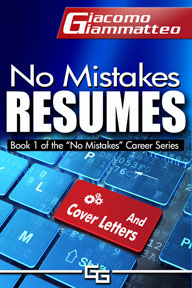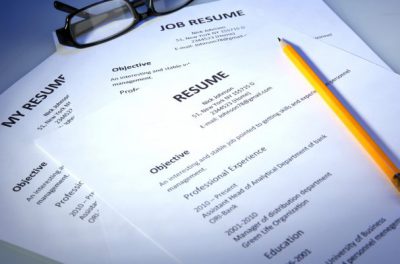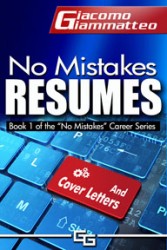
 Resume Mistakes
Resume Mistakes
Tense Issues
It’s widely accepted that resumes should be written in the past tense. Some people write their current position in the present tense and use past for all others. That’s fine. But where people run into trouble is when they mix tenses.
- Developed new process for incoming inspection that…
- Works with plant manager to develop…
If you use past tense for one item, use it for all.
Wrong Words
One of the most common mistakes on resumes is the misuse of the word “lead.” Far too many people use it in the past tense instead of “led.”
- Initiated and lead the company-wide effort to develop the product definitions and specifications.
The above sentence should have been, “initiated and led the company-wide…”
Overuse of Capitals
This is a major problem on resumes and in cover letters also. Which of the following statements have the correct capitalization? Do you know?
- Vast experience working with Quality systems and Regulatory filings…
- Worked with Clinical, Regulatory, Marketing, and Operations managers to facilitate…
- Responsible for the execution of Process Qualifications/Validation protocols and reports.
- Managed four Project Managers and a Project Coordinator.
- Experienced executive in the Medical Device and Diagnostic industries…
The answer is—none of them. None of the words should have been capitalized except the first word of each sentence. You can see more details in this post I did on capitalization or this one.
Misuse of Semicolons
I see a lot of semicolons on resumes and in cover letters, and while I praise a candidate’s bravery for using them, unfortunately most of them are used wrong. Here are three basic rules for semicolon use.
- To join two independent clauses that are closely related.
- To separate lists that include commas.
- To join two clauses using a conjunctive adverb.
Resumes are not complicated documents, and seldom require the use of a semicolon with the exception of #2—separating lists. If you learn these three rules, or at least that one, you should be okay.
For a more detailed article on semicolons read this post I wrote on my other website.
Common Typos
This is the worst of the worst. I know several HR managers who will trash a resume that has typos or spelling errors. It’s easy to miss an error when proofreading, but put yourself in the hiring manager’s shoes. It’s easy to miss any mistake.
What that means is if you can’t be troubled to make sure your resume is perfect, how will you make sure what you do for the company is perfect?
There Are Many Other Mistakes People Make
I cited these five types as an example of the kind of mistakes people make, but there are many. Any one of these might not be enough to send your resume to the trash or the “to-be-reviewed” pile, but the cumulative effect can be devastating. Consider the fact that the person screening the submissions might look through as many as 100 resumes per day, and quite often more than that.
If the average resume has 5 mistakes, that tells you that some have more than 5 and some fewer than 5. You’re not competing against the resumes with 10 or 12 mistakes; you’re up against the ones who have only 2 or 3, or possibly none.
This Isn’t A Grammar Test
I know that’s what you’re thinking. That the company isn’t hiring a grammarian, and you’re right. They might be hiring a customer service rep, or an engineer, or an administrator for the new vice president. But the position doesn’t matter. For most positions, they will draw more than enough qualified resumes. Quite often HR will receive as many as 500 resumes for a good job. Of that 500, chances are 10–20 will have the qualifications to be considered for the interview.
But guess what?
They aren’t calling in 10–20 people for an interview. They might interview 4 or 5, possibly 6. Do you want to guess which resumes of that bunch of 10–20 will not get the interview? If qualifications are similar—and they often are—mistakes become the deciding factor.























Typos are the main killer when it comes to resume mistakes. No employer wants to hire an employee that has a resume all riddled with mistakes. Applicants need to work on their resume or if need be, give them to professional writers for editing.
To be completely hones, I was reviewing a resume and the individual’s misuse of the past tense of lead stuck with me. 😉